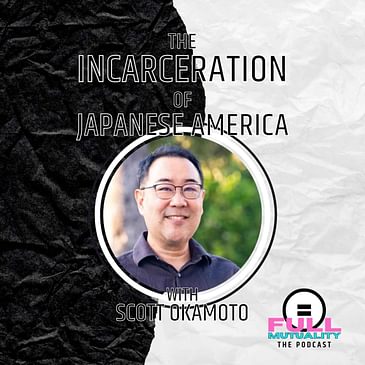To wrap up AAPI History Month, friend of the show Scott Okamoto joins Gail and Nate to share about his family's history during the years that Japanese Americans were incarcerated in concentration camps in the western part of the US and Canada. Also, as one of the hosts of the podcast Asians in Baseball, Scott needed to be tested on his knowledge of Asians in other sports, so listen all the way through for a little trivia on Japanese athletes in hockey and English soccer!
Resources mentioned in this episode:
- Asian Representation in American Media | Visibility in Hollywood: https://youtu.be/VCLk6VlD_Tk
- The History of Asian Representation in Film: https://youtu.be/k5KwDTXWgSA
- More about Asian America on Full Mutuality: https://fullmutuality.com/asian-america
- Nate's video essay on FX's Shōgun: https://www.youtube.com/watch?v=lSmSWUk8qZA
- Nate on Scott's podcast: https://dauntless.fm/podcast/chapelprobation/episode/s2e4-nate-nakao-the-demerit-king-of-bob-jones-u-bju
Buy Scott's book:
Scott's other media:
- Substack entry on Oppenheimer
- The Chapel Probation podcast: dauntless.fm/chapelprobation
- The Asians in Baseball podcast: podcastpotluck.com/asiansinbaseball
---
Follow us on Twitter at @fullmutuality, on Facebook at fb.com/fullmutuality, and on Instagram at @fullmutuality. Join the conversation in our Discord server at dauntless.fm/discord-server. Visit fullmutuality.com for more ways to connect with us.
Full Mutuality is a Dauntless Media Collective podcast. Visit dauntless.fm for more content.
Join as a partner on Patreon for exclusive content!
Hosted on Acast. See acast.com/privacy for more information.








